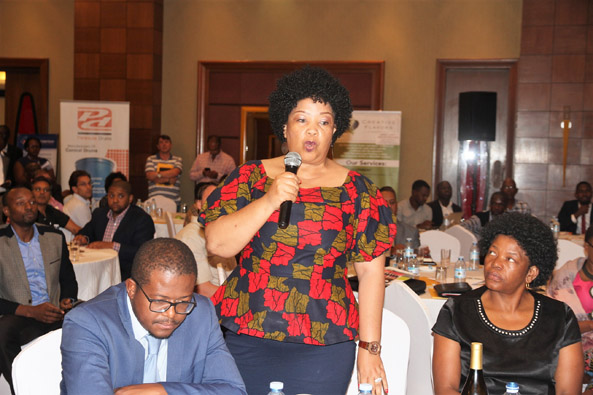Africa has no shortage of Jobs, but Skills |
| African countries need to re-prioritise and refocus their education on areas that will build their economies. This was said by the Acting South African High Commissioner in Uganda, Ms Phumeza Mukendi. She was speaking at the South Africa-Uganda Business Seminar that was hosted by the Department of Trade and Industry (the dti) in Kampala, Uganda today.
The seminar, which was attended by about 200 businesspeople, was part of the five-day Outward Trade and Investment Mission to Uganda organised by the dti. 25 South African companies operating in the agro-processing, capital equipment, energy and furniture sectors arrived in the East African country yesterday in search of trade and investment opportunities. The purpose of the mission to increase bilateral trade and investment between South Africa and Uganda. “Sixty percent of the general population of both Uganda and South Africa is made up of young people between the ages of 18 and 35, and many of these people are unemployed graduates. I must add that I do not think that Africa has a scarcity of jobs, but Africa needs certain skills to grow its economy. It is a matter of us re-prioritising and refocussing our education to areas that will build our economies. More than ever before, the continent needs electricians, plumbers, furniture makers, scientists, physicists, agro-scientists, and so on,” said Mukendi. She added that it was time for Africans to make their own furniture rather than import it from other parts of the world, for an example, notwithstanding the possibility that the same timber probably came from the African forests. “We have to look carefully at these things as we talk about intra-Africa trade, free trading areas, employment creation, economic growth, regional integration and food security. We need to invest in agriculture and encourage young people to study it so that we can feed ourselves and be self-sustaining,” added Mukendi. She said although the continent was endowed with fertile land that is conductive for agriculture to prosper, there was low productivity with low application of science and technology while the bulk of knowledge-based services were imported. “This emphasises the need and importance of re-prioritising our education in order to equip the young people with the necessary skills and knowledge required by our economies in this era of the Fourth Industrial Revolution,” concluded Mukendi. Early this month, the Deputy Minister of Trade and Industry, Mr Bulelani Magwanishe told a youth career expo in Ekurhuleni that Africa only had 300 000 managers of a million the continent needed to effectively run its economy.
Enquiries: |
MENUMENU
- Know the dtic
- Media Room
- Financial Assistance
-
-
- INCENTIVES
- 12I Tax Allowance Incentive
- Agro Processing Support Scheme (APSS)
- Aquaculture Development and Enhancement Programme (ADEP)
- Automotive Investment Scheme (AIS)
- Black Industrialists Scheme (BIS)
- Capital Projects Feasibility Programme (CPFP)
- Critical Infrastructure Programme (CIP)
- Clothing, Textiles, Footwear and Leather Growth Programme (CTFLGP)
- Export Marketing and Investment Assistance (EMIA)
- Film Incentive
- INCENTIVES
-
- INCENTIVES
- Global Business Service (GBS)
- Innovation and Technology Funding instruments
- Manufacturing Competitiveness Enhancement Programme (MCEP)
- Production Incentive (PI)
- Manufacturing Support Programme (MSP)
- Sector Specific Assistance Scheme (SSAS)
- Strategic Partnership Programme (SPP)
- Support Programme for Industrial Innovation (SPII)
- Technology and Human Resource for Industry Programme (THRIP)
- Workplace Challenge Programme (WPC)
- INCENTIVES
-
-
- Sectors and Service
- Sectors
- B-BBEE
- Special Economic Zones
- Industrial Development
- Trade and Export
- Legislation and Business Regulation
- Bills and Acts
- Statutory Committees
- National Liquor Authority
- Proposed prohibition of the use of certain EU names
- Institutional Support for Business
- South African Council for Space Affairs
- InvestSA
- Non-Proliferation
- The South African Council For Space Affairs
- Procurement and Tenders
- Research and Statistics


